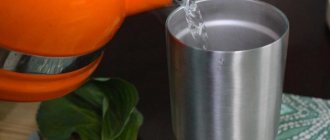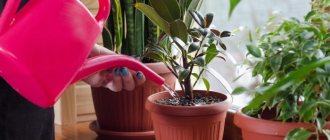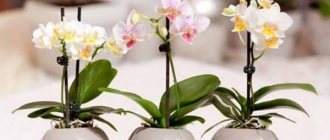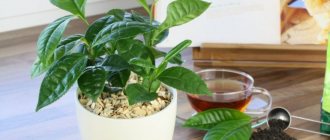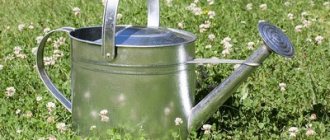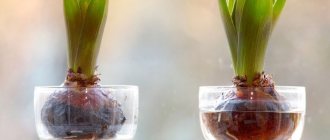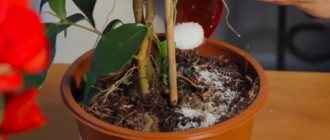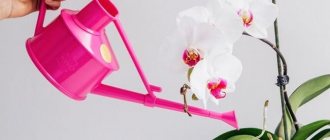Which plants are allowed and which are not?
Only a small number of indoor pets like to occasionally treat themselves to water with minerals dissolved in it.
These include cacti, which are accustomed to living and developing in desert conditions with a hot, arid climate.
To form strong needles and spines, shell rock, eggshells or chalk are added to the soil for cacti, so if the water is too soft, you can sometimes water the cactus with mineral water, this will be beneficial for its health.
A one-time watering with mineral water has a good effect on begonias , the leaves become shiny and the plant is abundantly covered with buds, but this can be done no more than once every two months.
There are flowers on the windowsills of amateur flower growers that cannot be watered with mineral water at all! Never and under no circumstances. These flowers include orchids.
In nature, these tropical plants are epiphytes, that is, they grow on other plants, but do not parasitize them, but receive moisture from the air and precipitation.
This video will tell you about watering indoor plants with mineral water:
Watering with mineral water
Is it possible to water indoor plants with mineral water? It is impossible to answer this question unequivocally in the affirmative. Some plants really benefit from mineral water in small quantities, while for others it is absolutely contraindicated. It all depends on the environment in which the flower grew in the wild.
In the tropics, flowers are more often found in a suspended state. Moreover, most of their nutrition comes from soft rainwater containing a small amount of dissolved mineral salts. In indoor conditions, such flowers require watering with settled, purified water without additional mineralization.
Flowers growing naturally in desert, dry soil are usually content with insufficient moisture. But it contains a huge amount of dissolved salts and minerals. They are accustomed to absorbing water with mineral impurities, so mineral water will not harm them.
The developer of CoviVac confirmed the possibility of revaccination with the drug
How to feed crocuses in March so that in April you will be pleasantly surprised by their flowering
We bake a whole basket of “mushrooms”: we take a plastic bottle to help
Main settings
It is logical to assume that the requirements for water used for watering indoor plants are much more serious. It should be soft and slightly acidic, contain oxygen, macro- and microelements. There is a concept of hardness, which in everyday life usually means the concentration of magnesium and calcium ions. Of course, it is better to water the plants with salt-free water. It is known that boiling slightly reduces the concentration of harmful substances. Therefore, the question arises as to whether it is possible to water flowers with boiled water.
Whey is very beneficial for plant growth. It saturates the root system with useful organic and mineral substances. If the roots receive good nutrition, then the above-ground part of the bushes will be healthy.
Irrigation with serum is an indispensable and effective prevention against fungal infectious diseases. The product works no worse than special fungicide preparations designed to combat pests and diseases.
Note! Do not water indoor plants with undiluted serum in its pure form. Otherwise, burns will appear on the leaf plates. The product is dissolved in water in a ratio of 3:1.
Tea is good for plants
Consequences
The big disadvantage of mineral water is that, in addition to microelements useful for plants, it contains a whole set of salts that settle both on the surface of the soil, which can be observed with the naked eye in the form of a white sediment, and in the depths of the earthen clod.
Salting the soil in a flower pot leads to negative consequences for the plant:
- Salts and alkalis in large quantities depress plants and can even lead to death.
- The soil becomes hard, which prevents oxygen from reaching the roots.
- Oversaturation with microelements does not allow the plant to develop correctly.
Mineral water cannot be used for regular watering of indoor plants; the harm caused by it will exceed the benefits many times over.
What kind of water is better to use?
Water for watering indoor flowers should be soft, that is, contain a small amount of salts, do not contain chlorine and carbon dioxide, and be moderately warm.
Three types of water are ideal for watering indoor pets:
- river;
- rain;
- melting from the snow.
For maximum benefit, you need to let it sit on the table for 24 hours and, if possible, acidify it, add a couple of handfuls of peat chips or a teaspoon of citric acid per ten liters.
Flowers do not like cold water; they need to be sprayed and watered with liquid warmed to room temperature .
All the most important and useful information about mineral water can be found in this section.
Is it possible to water flowers with mineral water?
Mineral water, especially medicinal water, contains a lot of salts, which are not particularly necessary for a green pet. When watering with such water, you will simply “salt” the soil and slowly kill the plant.
You can water flowers with mineral water, but not with carbonated water, soda contains alkali, and this calcium is not absorbed by plants, so only without carbonated water, I water the flowers with ordinary water at room temperature and the flowers feel very good.
Even people should not drink too much mineral water and mineral water is not exactly minerals and food for plants.
Many have already experimented with such feeding and the conclusions are as follows:
In the best case, nothing will change and the plant will not grow (bloom) better.
In the worst case, the flower will first stop growing, then it will wither and, if the soil is not changed in time, it will die.
The most ideal water for watering indoor plants is rain or melted snow, but before watering it, it must be left for a day so that harmful substances settle to the bottom. Our ecology leaves much to be desired and there is practically no clean precipitation.
I somehow had mineral water left in a bottle and it was already without gas, it wasn’t tasty to drink, so I took it and poured it into the flowers. This flower later died; apparently the soil became too saturated with salts, which is not very desirable for some types of plants. It’s not without reason that fertilizer or vitamins are sold separately for almost every plant; each has something different, but there is also something universal.
Perfect option
Tap water is a poor choice. It contains impurities and salts of heavy metals. In addition, it contains a lot of volatile chlorine. To neutralize it, just pour water into a jar or bottle and let it sit for 24 hours. This procedure will not do anything with calcium, magnesium and iron salts, however, the liquid will become quite acceptable for violets. There is one secret that will allow you to grow these flowers lush and beautiful. Do not pour water under the roots or spray the plants. It is much better to take a pallet and line it with rounded pebbles. Now all that remains is to pour water into it - and the first part of the work is completed. You will need a fairly thick rope with a synthetic backing to prevent it from rotting too quickly. Pass it through the drainage hole and pull it through the entire thickness of the soil. Leave the tail peeking out. It will be saturated with liquid from the pan.
Distilled water
It does not contain many microelements necessary for plants. Therefore, it can only be used when diluted by half with tap water. It is for this reason that it is taken quite rarely. But if the plant suffers greatly from hard water, then this option will be completely justified. Orchids, bromeliads, anthuriums, azaleas and other beautiful flowering plants especially do not like calcium and magnesium salts. But instead of distilled water, you can use boiled water; you will not lose anything.
How does rainwater affect growth?
Experts consider using rainwater to water plants to be the best choice. It is often equated to melt water. The watering liquid in both cases has a degree of softness that is ideal for indoor flowers.
We recommend: Growing at home Chlorophytum crested
However, residents of large cities are wary of this possibility due to the large amount of harmful impurities in the air. Experts advise collecting rainwater when it has been raining for several days in a row. In this case, its quality will be higher.
In the garden and in a pot
Water for indoor plants must have certain parameters. The fact is that in nature it goes through a number of natural filters. It evaporates and then falls as rain. After this, it is filtered through a layer of sand, warmed and absorbed by the roots of plants. When we talk about an indoor pot, everything is completely different here. The roots occupy almost completely free space, and the owner periodically pours out a small amount of water, which ensures the dissolution of the microelements contained in the soil.
Frequently asked questions: About watering
1. What kind of water should I use? How to soften water? By available means? Can it be boiled? Who uses filters, is there any benefit?
Answer:
You can filter water with a filter containing ion exchange resins or osmotic membranes, the result is excellent. But the process is long, and when you need to filter 15-20 liters in order to water all the flowers, it is simply painful. Plus, you regularly need to buy new filter cassettes, which, with intensive use, become clogged within a month or a month and a half.
Boiling water is also effective and also a chore. In addition, when boiling, air is removed from the water, which is not good for plants (the amount of dissolved oxygen is so small that it has no effect on the plant, unless, of course, it is flooded). It’s good to water with snow water, although, of course, it’s also a chore: the volume of snow is large, but you don’t get enough water. In addition, in the city a lot of smoke and dirt settles on the snow; it is better to collect it in the forest away from the highways, which in itself is not always feasible.
In stores you can find a “decalcifier,” that is, “a special product for neutralizing water hardness.” As they write in the annotation, “binds calcium and magnesium salts (causing water hardness), softening water for watering plants.” 500 ml – 85 rub. Most likely this is a solution of sodium salt EDTA, in any case, in the household you can use EDTA (Trilon B) as an anti-scale agent, but calcium dissolves and becomes a complex, but does not disappear.
About watering with cold “hot water”. Softeners and inhibitors are indeed often added to hot water from thermal power plants and boiler houses. However, this water circulates in a closed cycle and does not enter the water supply system. Through a heat exchanger, it heats ordinary cold tap water, which flows from the tap hot. Those. Hot tap water has the same chemical composition as cold water. But there are two differences.
First: hot tap water is most often softer and contains fewer dissolved gases, since the solubility of hardness salts and gases decreases with increasing temperature.
Second: the solubility of everything else increases with increasing temperature. So if the hot water supply system is very old or, on the contrary, completely new, then the hot water may be more “rusty” because it will dissolve iron salts that are present in old and completely new pipes. In addition, hot water can sometimes have an unpleasant taste, which it gets from plastic and rubber parts of the plumbing system (this almost never happens in residential buildings). This taste does not affect the chemical composition of the water in any way.
Conclusion: in the vast majority of cases, if you live in a normal residential building and your hot water is not rusty, it is better to settle it for irrigation. The taste, if there is one, can be ignored.
Freezing water in the freezer can only give a positive result in softening the water if it is frozen correctly. If you simply freeze water, then all the salts are included in the ice, and when it thaws, they return to the water. To obtain melt water, you must first monitor the process by freezing the water. Water does not freeze immediately; a certain amount of water remains, which then also freezes, but it is this water that does not immediately freeze that is a saturated saline solution, which has a lower freezing point. If you have time to drain this unfrozen solution, then the melted ice will produce melted, soft water. Otherwise, freezing makes no sense. Another thing is that there are different cities and the ecology too. If someone’s municipal water supply system is doing a bad job, then there’s no point in arguing, it will be pointless. And hot water is not chlorinated. This is pointless, because... it undergoes intensive boiling in boiler rooms, on the walls of which, by the way, harmful magnesium and calcium salts remain.
The only reliable means of softening cold water is the addition of oxalic and some other acids to control acidity. But you still need to protect it from chlorine.
2. Can you really water flowers with mineral water? it contains minerals needed by flowers, but in smaller quantities than in mineral fertilizers, in addition, it contains oxygen.
Answer:
Firstly, where does the oxygen come from? There is carbon dioxide there, but there is hardly more oxygen than in ordinary water.
And most importantly, the composition of mineral (not drinking, but medicinal mineral) waters is very different. There are ferruginous waters, and there are sulfurous ones. And plants need a certain balance of microelements. It is micro, since there is not enough nitrogen and phosphorus in the mineral water, this is not slurry.
Secondly: why? There are many fertilizers for indoor plants on sale. There are microelement complexes, for example, “Cocktail”. Why reinvent the wheel? There will be no savings from this either: by diluting liquid fertilizer, we will get much more solution than you can buy mineral water with this money. What's the point?
This is entertainment for the lazy. Poor tap water is indeed a problem, but then you need to water it not with mineral water, but with drinking water. For example, the one sold in five-liter plastic bottles. Or the one in 20-liter bottles for office drinkers (this is really soft water, since the method of ion exchange resins or osmosis is used for purification).
3. How to acidify water?
Answer:
You can acidify with citric acid, i.e. it gives an effect. Here is a person with 15 years (!) of experience in growing bonsai directly advises: “3-4g per 10 liters, or, if funds allow, ascorbic acid.” https://www.bonsai.ru/agro/nachalo.html Whether acidification is NEEDED depends on the species characteristics of the plant; some need it, others don't. For example, many orchids need this.
4. Do plants need iron?
Answer:
Everyone needs iron, like other microelements, copper, cobalt, molybdenum, zinc. Moreover, iron can exist in different forms, divalent and trivalent. Plants for the most part need divalent. You can see more details at https://www.msaqua.com/pmdd/iron.htm
5. Is it possible or not to water plants with boiled water?
Answer:
We need to look at what will cause more harm to this particular plant growing in this particular pot in this particular soil - from watering with unboiled water (hard, chlorinated, etc.), or from watering with boiled water (no air, hardness decreases, but maybe not completely, etc.). There are plants that are very sensitive to calcium salts. On the contrary, there are plants that love calcium. There are other plants. There are other methods of softening water. In general, how is hard water harmful? Because the soil quickly becomes salty. The same result can be “achieved” by too much inept and frequent feeding. Each gardener has his own opinion on this matter, due to the fact that he has more access. You need to watch how the plant reacts and act accordingly.
